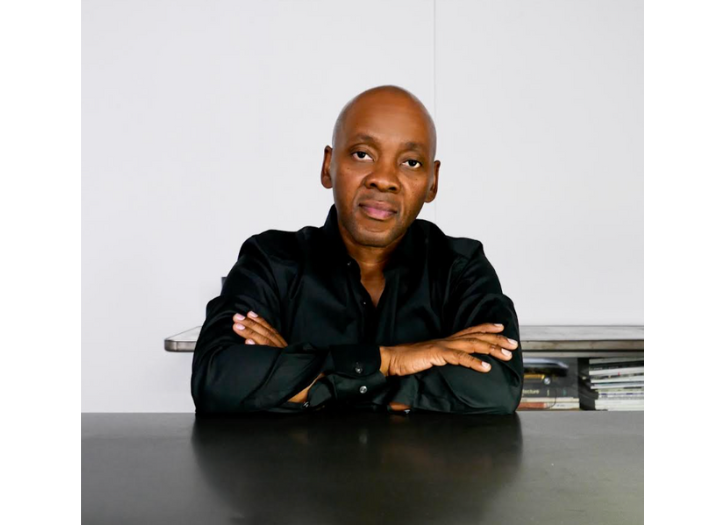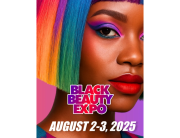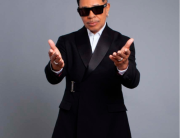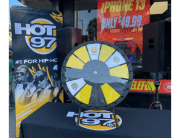Tab Nkhereanye knows a thing or two about hit records.
With 20 years of experience under his belt, including 6 years at Def Jam, Tab is now the SVP of Artists & Repertoire at BMG, working with a slew of talented artists and helping them craft what he’s known for best: hit records.
In fact, Tab first began his career as a songwriter, writing #1 hits for the likes of Justin Bieber, Madonna, Britney Spears, and Mary J. Blige. He’s also responsible for discovering Frank Ocean, Alessia Cara and many more — proving the importance of songwriters within the music industry and paving a way for others to also succeed by using this blueprint.
In describing himself, Tab states, “I am a creative executive, I started off as a songwriter, so I don’t fashion myself as a traditional executive in the sense that I wasn’t formally trained for this. My superpower is that I definitely speak the language of creatives and artists, because that’s the world in which I came from.”
Beyond the accolades, Tab aims to be a voice and mentor for black songwriters and aspiring executives who hope to follow in his footsteps. Beyond his work at BMG, he spends time providing music and education to youth in single parent homes, splitting his time between Atlanta and Los Angeles.
Sheen spoke with Tab about the art of making a hit record, and how to break an artist in 2023.
I love that you started out as a songwriter. What records are you most proud of?
It’s funny, a friend of mine just sent me something that 20 years ago, almost to the day on October 16th. I wrote the Britney Spears, Madonna record “Me Against The Music,” which was the #1 dance record when it came out. I wrote Justin Bieber’s very first single “One Time.” I’ve written hits for Mary J. Blige, Fantasia, Destiny’s Child. A lot of people.
What inspired you to make the switch from songwriter to executive?
I was sitting in studios for 10 to 12 years. I was the kind of writer who wanted to see myself to get out, so I started signing my own artists. I signed a girl named Blu Cantrell, we had a big hit with her. I started signing my own artists and developing my own artists. From there, I wanted to see what was behind the veil inside of a building. That’s where it was. I went on to have a lot of success with artists like Alessia Cara Frank Ocean.
What’d you do with Frank Ocean?
I found Frank Ocean and I signed Frank Ocean to his first deal.
People call him a genius for how he handled his label situation.
Listen, he found a crack in the system and exploited it. [laughs]
You’re currently SVP of Artists & Repertoire at BMG. How’s the new gig?
It’s really cool. I’m back in the publishing world, but it’s now a situation where I’m allowed to be a little bit more creative and more hands-on — in terms of being a part of not just making deals, but part of creating the projects post deal. That’s been really cool. Some of my highlights there are an artist named Snoh Aalegra.
I love Snoh!
I signed Snoh. I have a new artist I’ve been putting out on Atlantic Records named Symba, who I love. I signed him on the publishing side. I did his deal before he even had a record deal. Those are my highlights right there. I just signed and closed a writer who’s really very successful, his name’s Dream. I just signed Dream to BMG. He’s written pretty much every Beyonce record that’s ever come out. He wrote “BREAK MY SOUL” and all that other stuff.
What does it take to break an artist in 2023?
Consistent releasing of music. It’s not going to take one song, you gotta put out a lot of music all the time. You have to super serve your fanbase. If it’s 10 fans, if it’s 100 fans, you gotta super serve them. Find your community. The one good thing about streaming is we know our fans are now geographically. You’ve gotta find them and connect to them. There’s many platforms that allow you to do that, so finding your community and spending time there.
What are things artists need to be doing to develop?
Obviously, spending time on social media. Which I hate, but it’s very necessary. And writing hit records.
What is the key to writing a hit record?
Being vulnerable and telling your truth. Listen, and being able to write a big hook never hurts.
What is the science behind the hit song? Is there a formula you follow?
Something that feels global in a sense, because the world is flat musically now. So something that’s global. It doesn’t matter tempo, it just matters the feel and energy.
How have you seen the industry change over time, for the good and bad?
The bad is we aren’t breaking that many artists because we’re so song-focused, and we’re not artists-focused. That’s the negative. The good would be independent labels, artists are getting ownership of masters and things of that nature. That’s good. These independent labels are allowing us to build people up to own their masters and have ownership in their art form.
What do you see in the future for the music industry?
I think it’s more what independent labels are. Labels like 10K, you’re gonna see a lot more of those. It’s DIY, it’s going to be a lot more from your basement to the masses.
Would you recommend an artist staying independent?
Yes. At the end of the day, majors still can do things that the independent companies can’t do — just because of their reach, or at least currently. At some point, you’ll know when it’s time to leave college and go to the pros.
How can young writers and artists best set themselves up for success?
Learn from people who’ve done it before.
Any artists that you’re excited to see breakout?
Yes, Symba. Symba for sure.
Being from the Bay, is there a bond you guys share?
We definitely do. He’s from the East Bay. I was born in San Jose, spent my early years in Pittsburg, California. Then I went to junior high and high school in the city. We’re sort of from the same place.
Photo Credits: Courtesy of Tab Nkhereanye







Add Comment
You must be logged in to post a comment.